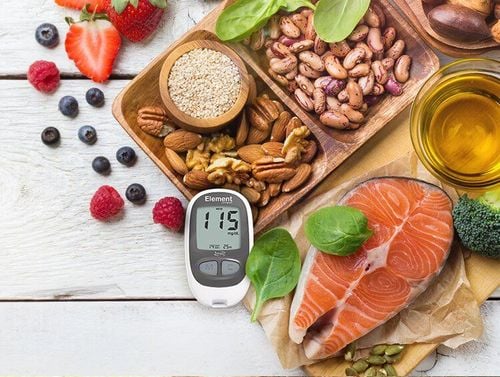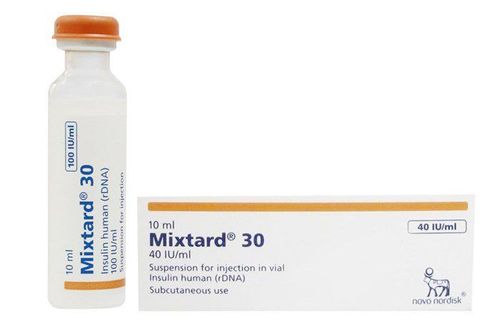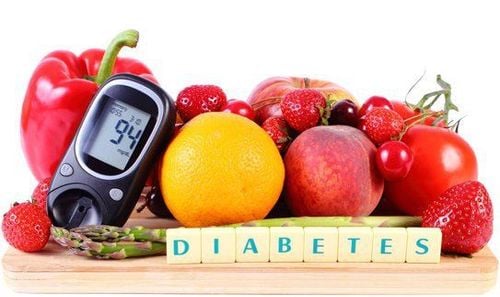Avocados contain more fat and calories than other foods. So can diabetics eat avocados? In fact, diabetics can enjoy many types of avocados while still controlling their blood sugar, blood pressure, and weight.
1. Can people with diabetes eat avocado?
For diabetics, following a scientific diet plays an extremely important role. The issue of self-control of diabetes is greatly affected by the diabetic's diet.
According to experts, for diabetics, they should eat foods that help control blood sugar levels. This is an effective treatment to help patients control the disease well, prevent complications and live happily with the disease.
By following a balanced diet with avocado, those who love this familiar dish can enjoy it without harming their health.
For main meals or snacks of diabetics, people should choose healthy avocados and combine them with foods rich in fiber and low in calories.
People with diabetes can safely eat avocados as part of a balanced and healthy diet.
As with any food, moderation is key, so too much avocado can be harmful to people with diabetes and those without.
People with diabetes should consider the following when choosing avocados to include in their diet:
Calories
Avocados are high in calories and fat. Although calorie content varies between types of avocados, people with diabetes should avoid eating too much of them.
Type 2 diabetes is strongly linked to obesity, and losing even a few pounds can reduce your risk of diabetes. More than 87% of people with diabetes are overweight or obese.
Some ways to help people with diabetes eat avocados safely and minimize weight gain include:
Dividing avocados into smaller portions
Choosing lower-calorie varieties of avocados.
Use avocados for flavor rather than as the main ingredient in a dish.
People with Diabetes Can Eat Avocados Safely

Saturated Fat
Avocados are high in saturated fat compared to many other foods. In small amounts, saturated fat is considered harmless and can be beneficial to the body. However, too much saturated fat in foods can cause weight gain, high cholesterol, gallbladder problems, and heart disease.
The American Heart Association recommends a diet that contains no more than 5-6% saturated fat, which means that in a 2,000-calorie daily diet, there should be no more than 120 calories or 13 grams (g) of saturated fat.
Some other experts recommend consuming no more than 10% of daily calories as saturated fat, which can increase the amount of butter a person can consume.
People with diabetes can do this by following a diet of no more than one serving of butter per day.
Researchers have not yet determined the link between saturated fat and heart disease.
That said, people with diabetes need to pay attention to their overall food intake, especially from red meat, bacon, sausage, full-fat dairy products, and other high-fat foods.
Since people with diabetes already face a higher risk of heart disease than others, they should continue to reduce their saturated fat intake.
The most important thing for people with diabetes is to follow a diet that is primarily plant-based, rich in unsaturated fats.
Sodium
People with diabetes should make sure to keep their salt (sodium) intake to 2,300 milligrams (mg) or less per day. Salt can increase blood pressure, causing or worsening diabetes-related heart problems.
Avocados are often high in salt, especially processed ones. In some studies, experts found an average salt content of 863 mg per 100g of processed cheese.
For fresh avocados, the average salt content is 498 mg per 100g of avocado. To minimize sodium, people can choose fresh avocados instead of processed products.
People with diabetes need to pay attention to the amount of saturated fat and sugar in the body

2. How will avocado affect blood sugar?
Avocado has a low glycemic index (GI), which means it releases glucose slowly and will not cause a spike in blood sugar. However, people often consume avocado with other foods, and some of these foods can increase blood sugar.
People often consume products rich in carbohydrates, such as crackers, fruit, or honey, with avocado. These will directly affect blood sugar, but combining them with the right amount of cheese can prolong satiety and appetite.
People with diabetes must also pay attention to the portion size of the foods they eat, along with avocado, to manage their saturated fat and sugar intake.
People with diabetes should avoid processed avocados. These are high in salt and may also contain other ingredients that pose a risk to people with diabetes.
Some butters are high in salt, such as: feta, Edam, Halloumi.
Cheeses that are lower in sodium include:
- Wensleydale
- Emmental
- Mozzarella
- Avocado cream
- Most butters contain similar amounts of saturated fat, but some have more. American and Monterey Jack are slightly higher in saturated fat than many others, while provolone and mozzarella are slightly lower.
In addition to considering the salt and saturated fat content, people with diabetes should check the overall nutritional value. Avocados are high in protein, calcium, and other minerals that are particularly beneficial for health.
People with diabetes should consider the following:
- Provolone provides the full daily value of calcium.
- Neufchatel tastes similar to avocado cream but contains only 1⁄3 of the fat content of avocado cream.
- Parmesan is higher in protein than some other butters, with 8g per serving, but slightly lower in calories.
- Fermented butters, such as some fresh butters, ricotta butter, feta, Gouda and Cheddar, can provide probiotics.
- Probiotics are healthy bacteria that have been linked to improved health, including helping to reduce the risk of heart disease, fight yeast infections that people with diabetes are prone to, and improve gut health.
- Low-salt butters are the healthiest choice for everyone, including diabetics.
3. Benefits of avocado
Some studies have shown that avocados may have some benefits for people with diabetes.
A 2019 study, although conducted on mice, found that low-fat avocados can improve insulin sensitivity after just one measurement. This reduces the risk of diabetes without affecting insulin production or body weight.
Avocados are also high in protein. Protein can help people feel fuller for longer, reduce cravings for unhealthy foods or eating too many sugary carbohydrates.
Avocados are a great source of protein for vegetarians and people with diabetes.
Reference: medicalnewstoday.com
To arrange an appointment, please call HOTLINE or make your reservation directly HERE. You may also download the MyVinmec app to schedule appointments faster and manage your reservations more conveniently.








